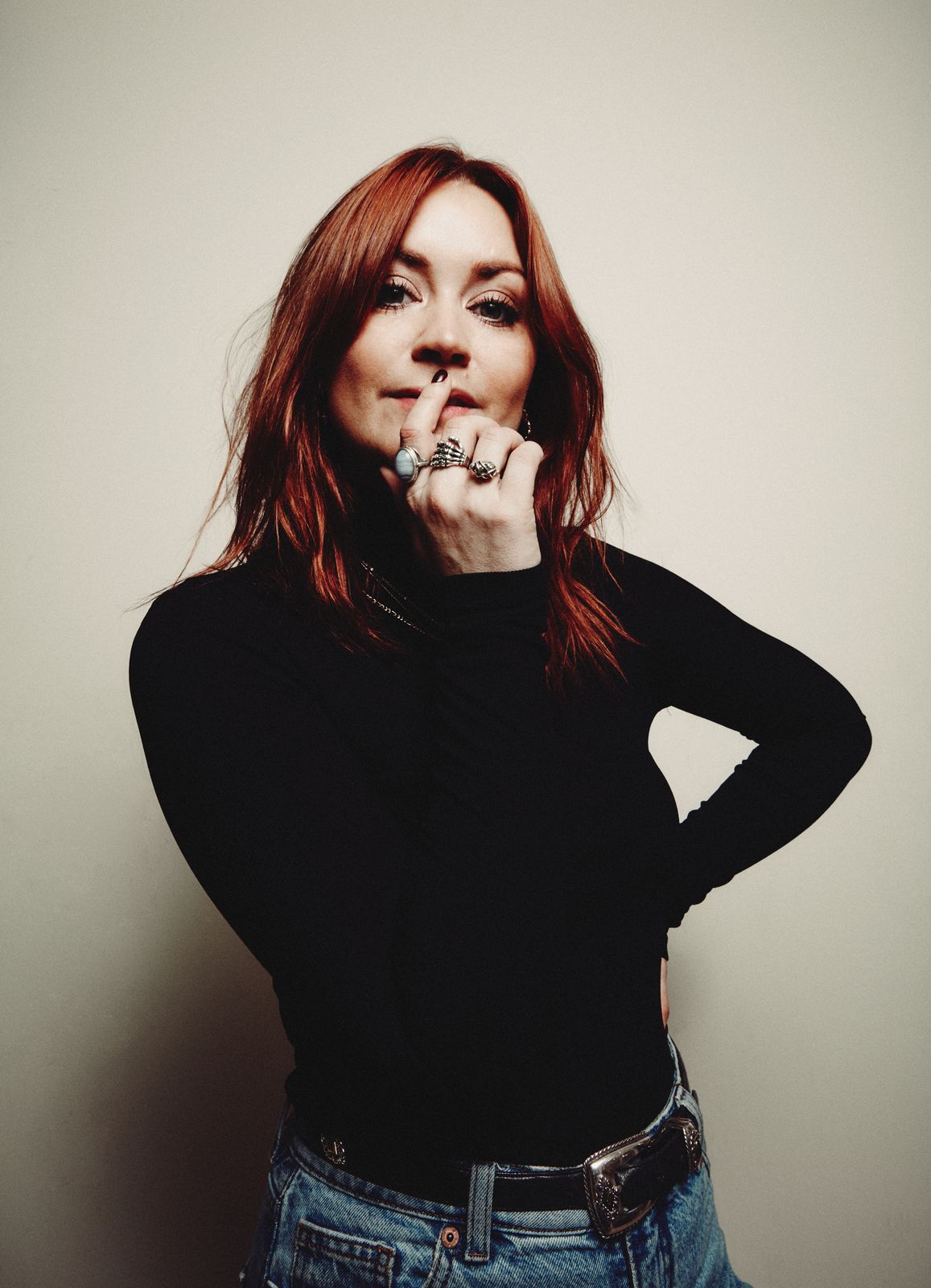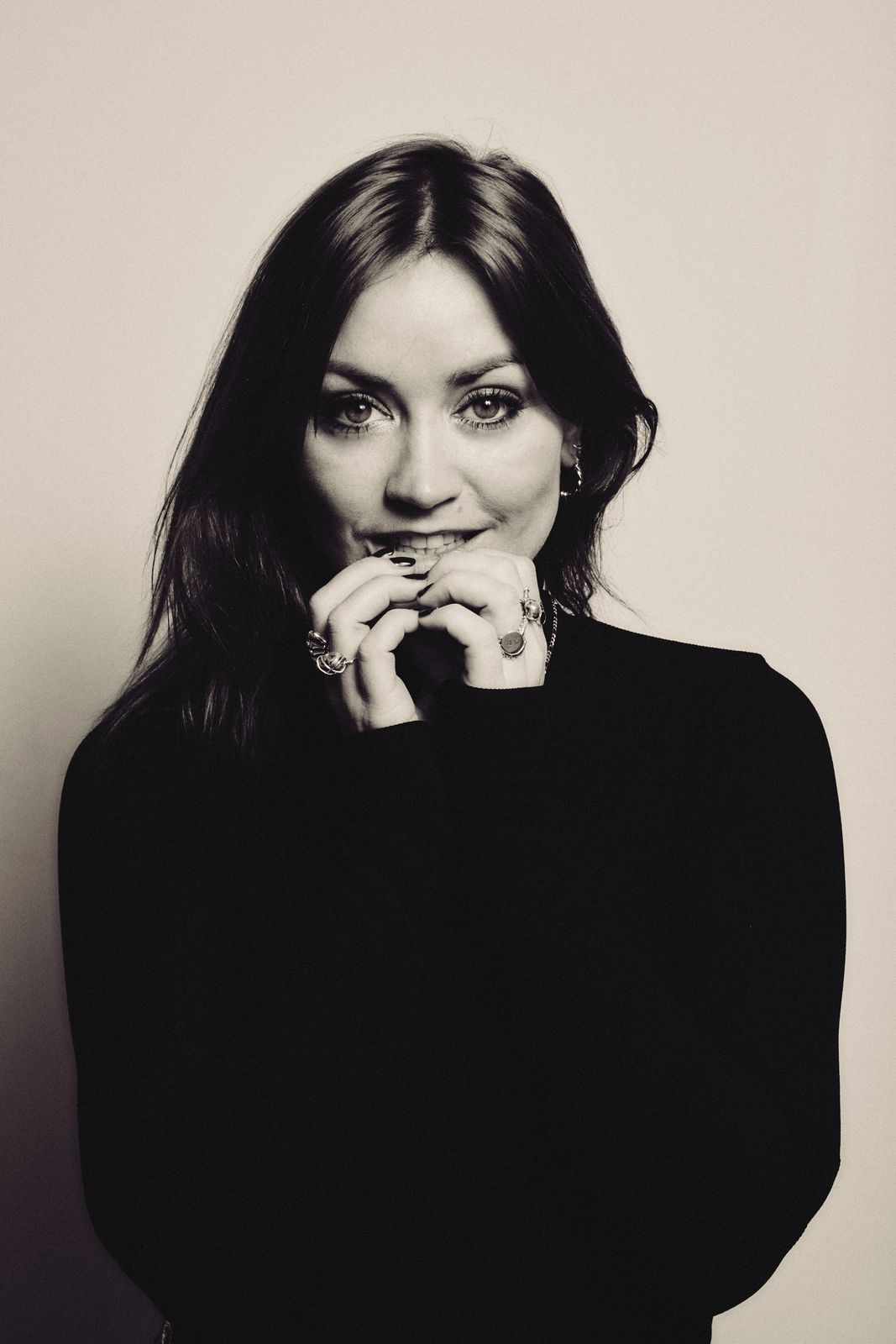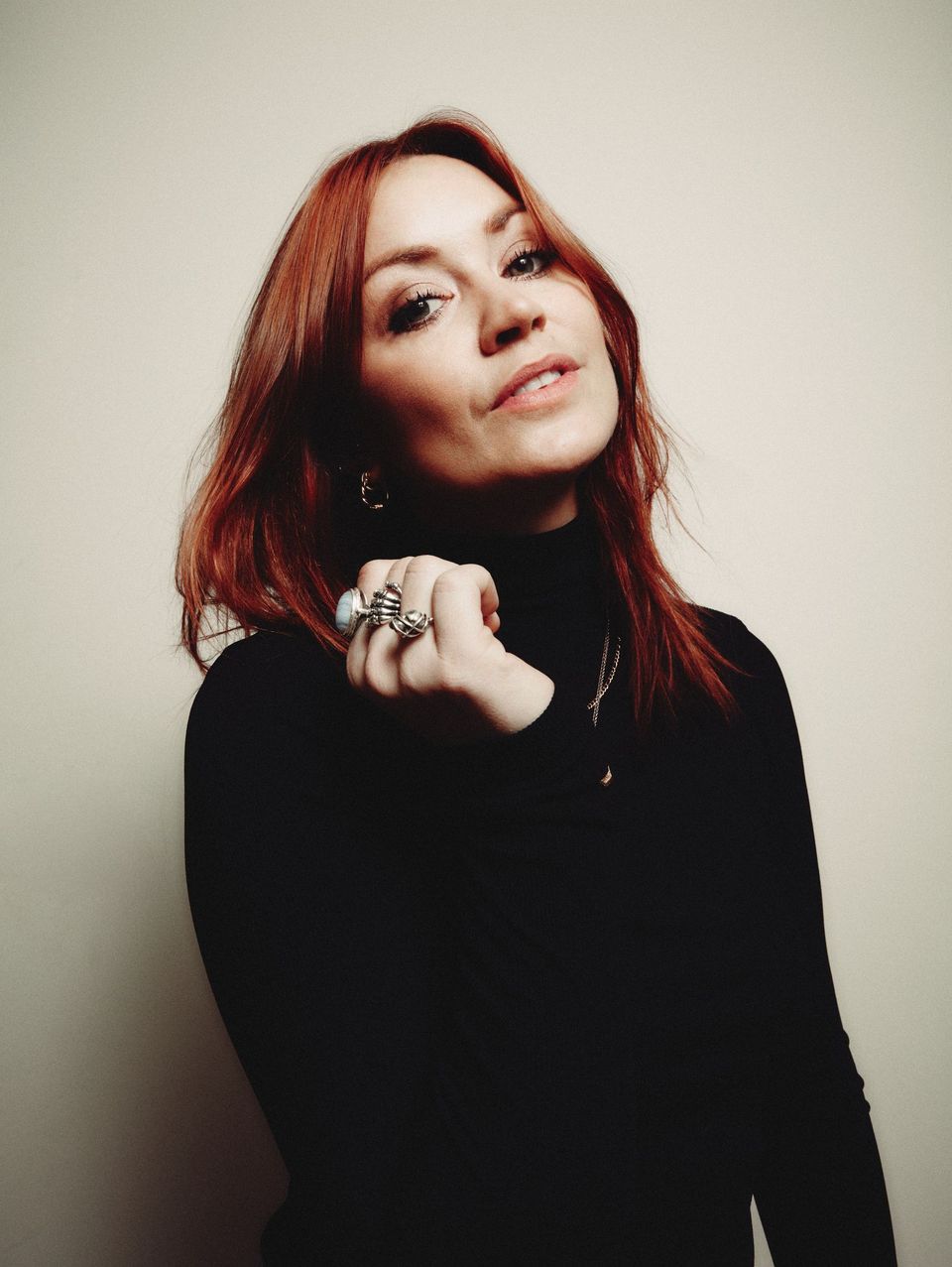Arielle Free, dopo un anno fantastico, si racconta su Parkett in una chiacchierata a 360 gradi sul proprio percorso artistico.
Arielle Free ha accompagnato le piste di gran parte dei club. La sua hit “You can’t stop me”, lanciata su BBC Radio è stata suonatissima. L’artista scozzese, uscita su Defected ed Edible tra le altre, ha confermato il proprio successo dietro le console delle più prestigiose venue.
In Gran Bretagna nei grandi appuntamenti estivi come Parklife e Creamfields, ed ad Ibiza dove è stata resident del party Future Rave e ha debuttato su Radio 1 Weekend. Un anno fantastico, di cui abbiamo voluto parlare con Arielle.
Buona Lettura!

Arielle Free Press Credit Edward Cooke
Ciao Arielle, benvenuta su Parkett. Come stai e come sta andando questo periodo di recupero dopo gli anni di pausa?
Quest’ultimo anno è stato da sogni. Quando siamo entrati per la prima volta nella pandemia, ero seduta sul maggior numero di prenotazioni di concerti che avevo avuto finora nella mia carriera e poi sono scomparse dal nulla. Fortunatamente ero attiva durante il blocco, facevo live streaming e ancora con il mio programma radiofonico, quindi per fortuna significava che sono rimasta da una parte occupata, e viaggiando in lungo e in largo per suonare. Quindi non posso davvero lamentarmi, sarò per sempre grata di poter essere in onda tutta la settimana a chiacchierare e suonare la musica che amo, poi passare i fine settimana a suonare quella musica a una folla dal vivo e, si spera, farli ballare.
Sei nata in Scozia, cresciuta a Glasgow… Cosa ricordi di quei luoghi, e quando hai deciso di avvicinarti alla musica?
Ricordo una giovinezza che mi ha reso dura oltre che estremamente colloquiale e aperta al dialogo (credo). Tutti a Glasgow iniziano una conversazione con te ed è fantastico! Anche la scena musicale in Scozia è meravigliosamente vasta, sono cresciuta con un inebriante cocktail di pop, punk, beat e r’n’b. Passavo le mie giornate a scuola a parlare delle Spice Girls, e poi mi intrufolavo nei bar per ballare Ashanti o andare all’Arc Chaos under 18, che era per lo più happy hardcore. Non ho osato dilettarmi nel fare la mia musica fino al 2020 semplicemente perché non pensavo che sarei stata abbastanza brava. Sono sempre stata la curatrice e la selector, non la creatrice di musica. Sono contenta di aver fatto un salto nella mia carriera.
Credo che nella tua vita e anche nei tuoi ascolti un posto speciale sia occupato dalla radio. Pensi che l’arrivo delle piattaforme digitali abbia influenzato l’audience/i numeri della radio?
Il mezzo radiofonico esiste da più di cento anni e questo la dice lunga. Sicuramente le persone cambieranno le loro abitudini di ascolto, ma non credo che l’appetito per la cura e la conversazione svanirà mai. Alle persone piace essere presentate e guidate verso nuova musica e artisti, oltre a sentirsi come se stessero trascorrendo il loro tempo con un migliore amico.
Cosa ti ha insegnato la radio e in cosa ritrovi ancora la sua magia?
Che se mai ti sentirai solo ci sarà sempre qualcuno in radio a tenerti compagnia e, si spera, a farti sorridere. Che sia attraverso le loro selezioni musicali o la chat o entrambi!
Il tuo nuovo remix di “Tell Me It’s True” dei Gorgon City rappresenta un ulteriore passo nel tuo percorso.. come hai lavorato in studio per realizzare questo remix (puoi trovarlo qui)?
Volevo aggiungere un suono più ravey/club alla traccia che già adoravo. Sono andata dal mio amico Louis Souyave che è molto più abile di me come produttore e gli ho chiesto aiuto con una melodia rave synth. L’abbiamo aggiunto, ho registrato la mia voce per aggiungere gli “whoops” perché volevo portare la mia energia alla traccia e ho spruzzato alcuni extra su di essa e basta. Era piuttosto semplice, ma era già una bellissima traccia, quindi la sfida era non togliere troppo dall’originale ma farla comunque suonare a mio modo.
Hai qualche ricordo speciale legato a questa traccia e a quest’estate?
L’ho suonata spesso all’inizio dei miei Hi set come parte della mia residenza ogni venerdì lì. È il punto di svolta da quando le persone entrano nel club e devono prendere confidenza con la pista da ballo e poi si sentono pronte per tuffarsi nel rave.
“Soul Full” è nato durante la pandemia. Vuoi raccontarci la storia dietro la genesi di questo successo?
Avevo detto al mio amico Gotsome che avevo iniziato a imparare a produrre e lui mi suggerì di andare a trovare i ragazzi Mortimer nel loro studio di Bristol per apprendere alcuni suggerimenti e abilità. Producono da oltre 15 anni ed era un modo per me di guardare cosa fanno e come lo fanno. Il passo successivo è stato suonarci. Ci veniva in mente la melodia principale e le voci di eco e alla fine della giornata avevamo realizzato una traccia che tutti amavamo davvero e su cui vibrava. Ho suggerito di far cantare Joe Killington perché ero ossessionata da come suonava nella traccia di Bishop Solid Gold. È tornato con un ribaltamento subito completamente sull’atmosfera che volevamo ed eccolo lì. Wez Saunders di Defected l’ha sentito e ha suggerito che sarebbe stato fantastico pubblicarlo su D4Dance ed è così che è nato Soul Full.
Tra le influenze vedo anche un amore per la musica afro.. Come mai ti senti vicino a questi suoni apparentemente così distanti da te?
Non posso dire esattamente perché mi sento vicino al suono, è solo quello che mi piace ascoltare e ballare. Solo puro apprezzamento.
Alterni il tuo lavoro di dj a quello di conduttrice radiofonica.. come riesci a bilanciare queste due personalità e l’una ha mai intralciato l’altra?
Non c’è gestione delle due persone in quanto sono la stessa cosa. Sono una curatrice di musica. Suono la musica attraverso un mixer radio e una scrivania o nel club su un mixer e deck.
A volte la vita da DJ può essere stressante. Come riesci a mantenere il tuo equilibrio interiore?
Esercizio e sonnellini in discoteca.
Hai ancora dei sogni legati alla musica da realizzare?
C’è un enorme elenco di ciò che mi piacerebbe essere in grado di ottenere in termini di abilità e concerti. Sono ancora così nuova e non ho molta fiducia nell’iniziare e completare una traccia. Quindi non vedo l’ora che diventi una seconda natura.
Grazie per essere stata nostra ospite Arielle!
ENGLISH VERSION
Hi Arielle Free, welcome to Parkett. How are you, and how is this recovery period going after the years of hiatus?
This last year has been the stuff of dreams. When we first entered the pandemic I was sitting on the most gig bookings I’d had in my career so far and then they all just disappeared. Luckily I was active during lockdown, doing live streams and still with my radio show so thankfully it meant that I’ve come out of the other side busy and travelling far and wide to play. So I really can’t complain, I’ll forever be grateful that I can be on the airwaves all week chatting away and playing music I love then spend my weekends playing out that music to a live crowd and hopefully get them dancing.

Arielle Free Press Credit Edward Cooke
You were born in Scotland, raised in Glasgow… What do you remember from growing up there, and when did you decide to approach music yourself?
I remember a youth that made me tough as well as extremely conversational and approachable (I think). Everyone in Glasgow starts a conversation with you and its great! The music scene in Scotland is wonderfully vast too, I was brought up on a heady cocktail of pop, punk, beats and r’n’b. I’d spend my days talking at school about Spice Girls, and then sneak into bars to dance to Ashanti or go to Arc Chaos under 18s which was mostly happy hardcore. I didn’t dare dabble in making my own music until 2020 purely because I didn’t think I’d be good enough. I’ve always been the curator or selector not the music maker. I’m glad I took the dive.
I believe that in your life and also in your listening a special place is occupied by the radio. Do you think that the arrival of digital platforms means radio’s audience/numbers has been affected?
The medium of radio has been around for more than a hundred years and that speaks volumes. Sure people will change their listening habits but I don’t think the appetite for curation and conversation will ever go. People like to be introduced and guided to new music and artists as well as feeling like they’re spending their time with a best mate.
What has the radio taught you and in what do you still find its magic?
That if you ever feel alone there will always be someone there on the radio to keep you company and hopefully help make you smile. Whether that’s through their music selections or chat or both!
-Your new remix of Gorgon City’s ‘Tell Me It’s True represents a further step in your path .. how did you work in the studio to make this remix? I wanted to add a more ravey/club sound to the track that I already adored. I went to my friend Louis Souyave who is much more accomplished than me as a producer and asked him for help with a rave synth melody. We added that, I recorded my vocals to add the ‘whoops’ as I wanted to bring my energy to the track and sprinkled a few extras on it and that was that. It was quite simple but it was already a beautiful track so the challenge was not to take too much away from the original but still make it sound like me.
Have you any extra special memories playing it out this summer?
I’ve often played it at the beginning of my Hi sets as part of my residency every Friday there. It’s the turning point from when people enter the club and have to get themselves familiar with the dance floor and then they feel ready to proper dive into the rave.
“Soul Full” was born during the pandemic. Would you like to tell us the story behind the genesis of this hit?
I had mentioned to my friend Gotsome that I had started learning how to produce and he suggested going to visit the Mortimer boys in their Bristol studio to learn some tips and skills. They’ve been producing for over 15 years and it was really just meant to be me watching what they do and how they do it. The next thing we were jamming and we’d come up with the main melody and the echo vocals and by the end of the day we had made a track we all really loved and vibe over. I suggested getting Joe Killington on vocals as I was obsessed with how he sounded on the Bishop track Solid Gold. He came back with a toppling straight away completely on the vibe we wanted and there it was. Wez Saunders at Defected heard it and suggested it would be great to release on D4Dance and that’s how Soul Full came to be.
Among the influences I also see a love for the Afro house .. How come you feel close to these sounds apparently so distant from you?
I can’t say exactly why I feel close to the sound it’s just what I enjoy listening to and dancing to. Just pure appreciation.
You alternate your work as a DJ with that of radio presenter .. how do you manage to balance these two personas and has one ever hindered the other?
There’s no managing of the two personas as they’re the same thing. I’m a curator of music. I either play music through a radio mixer and desk or out in the club on a mixer and decks.
Sometimes DJ life can be stressful. How do you manage to keep your inner balance?
Exercise and disco naps.

Arielle Free Press Credit Edward Cooke
Do you still have any music related dreams to realize?
Loads, there is a huge list of what I’d like to be able to achieve skillswise and gigs wise. I’m so new still and don’t have a huge amount of confidence starting and completing a track. So I look forward to the day it becomes second nature.
